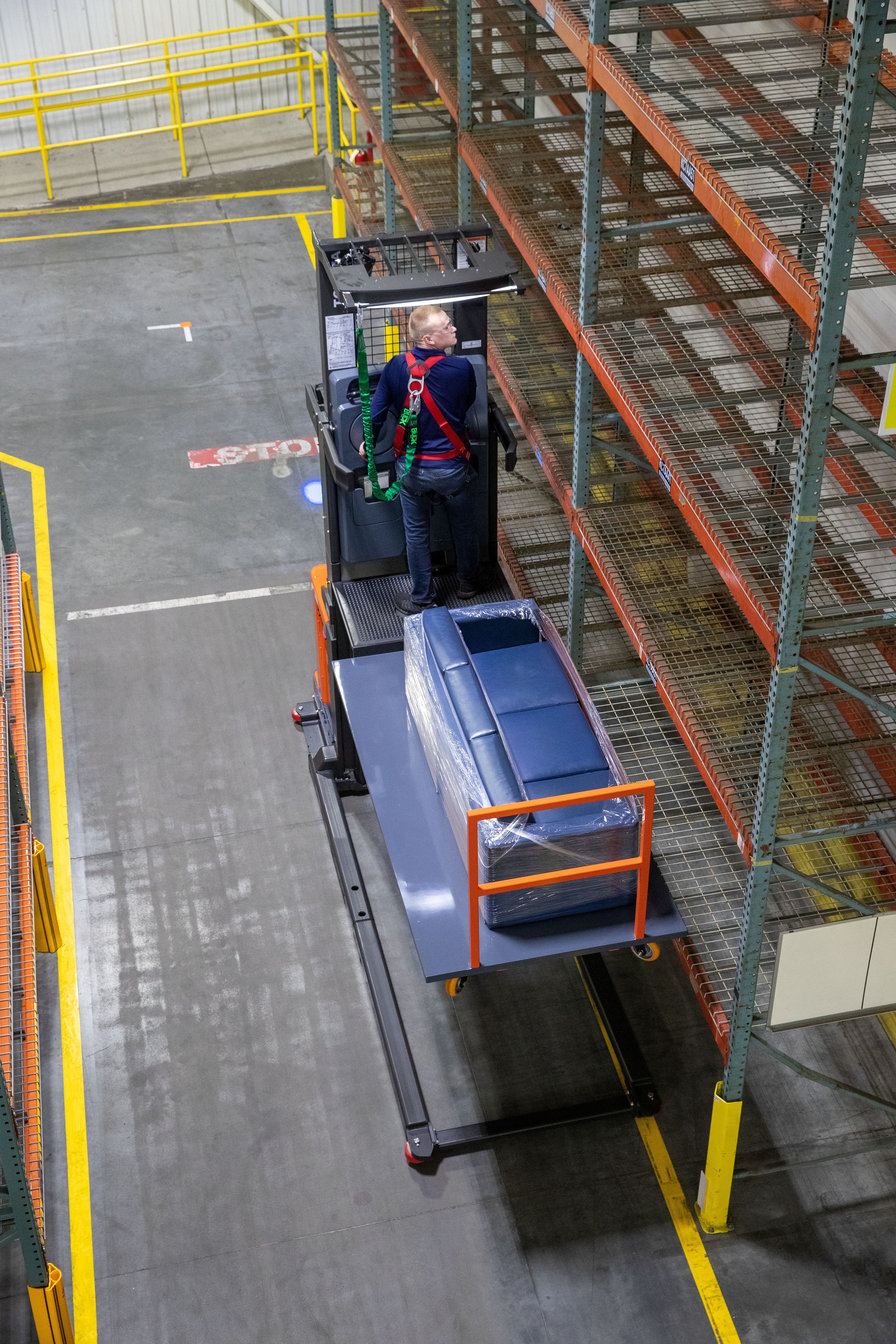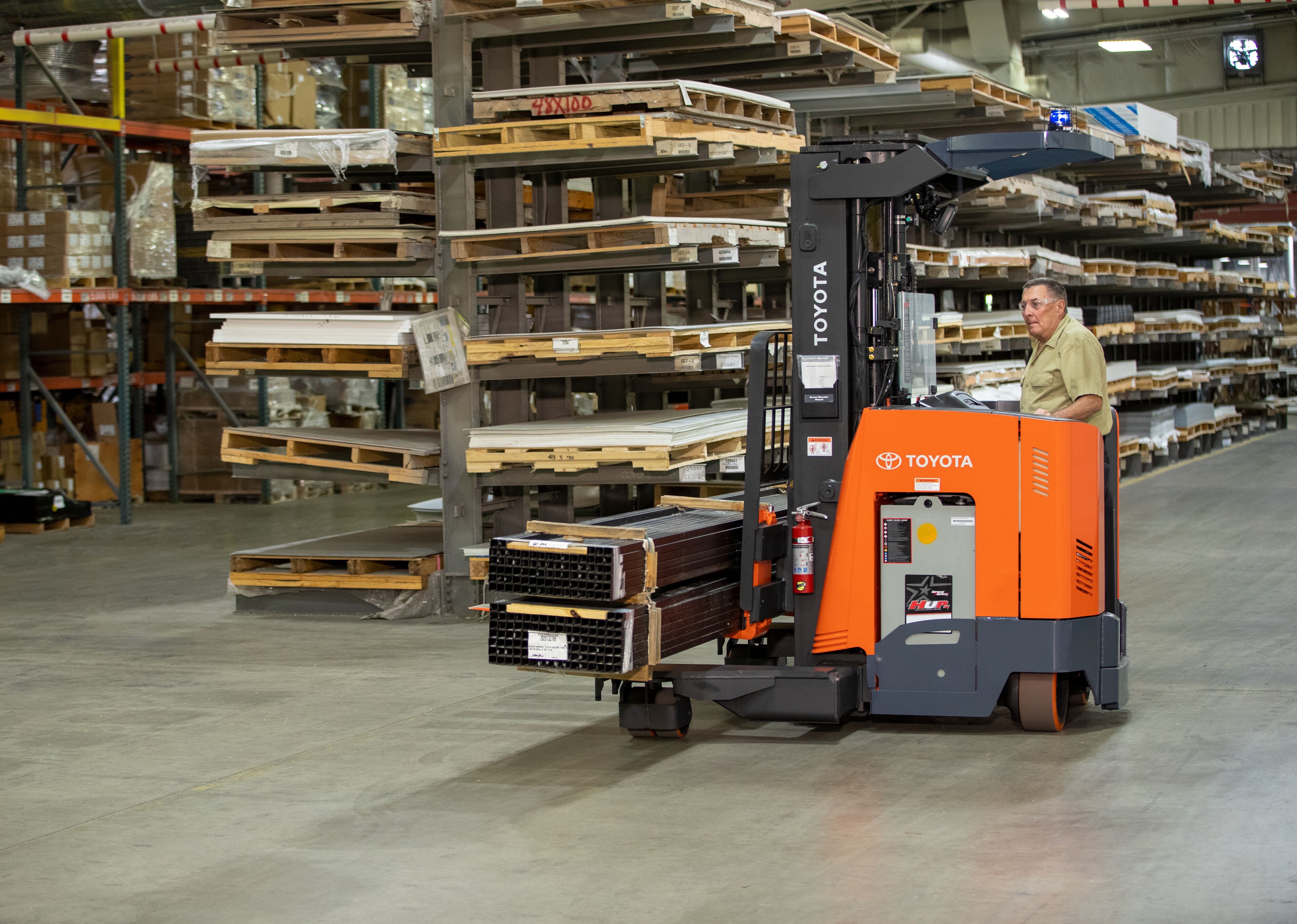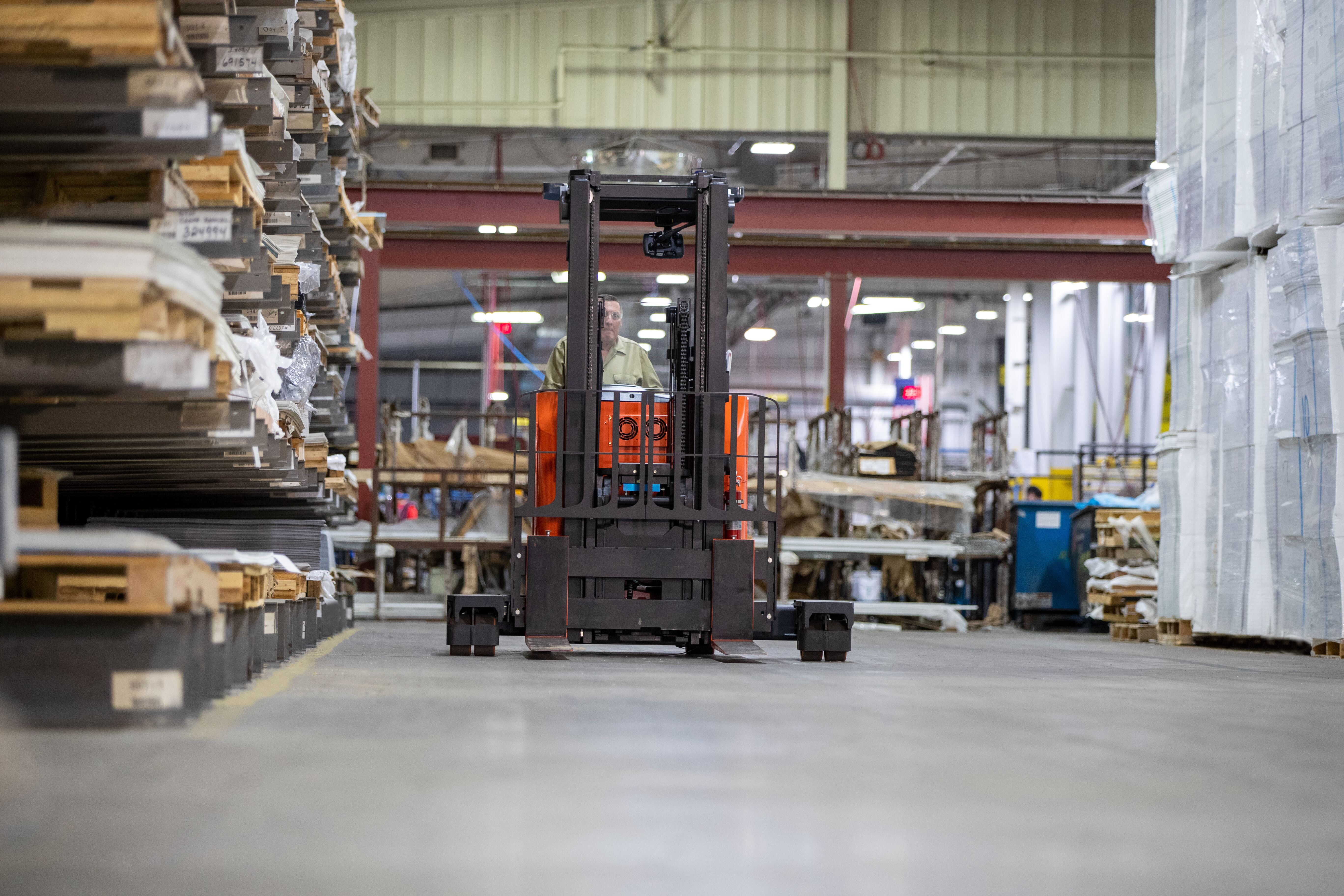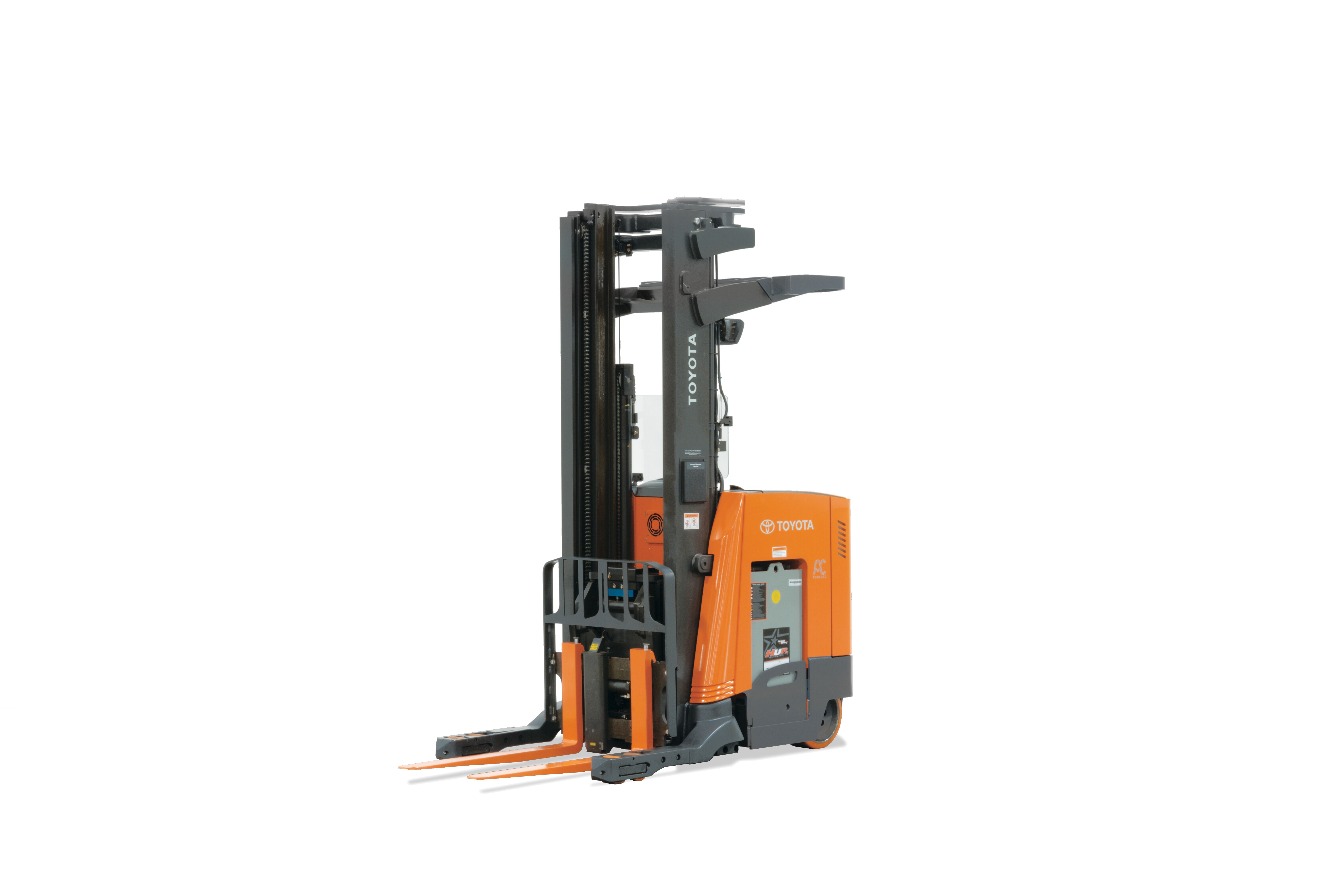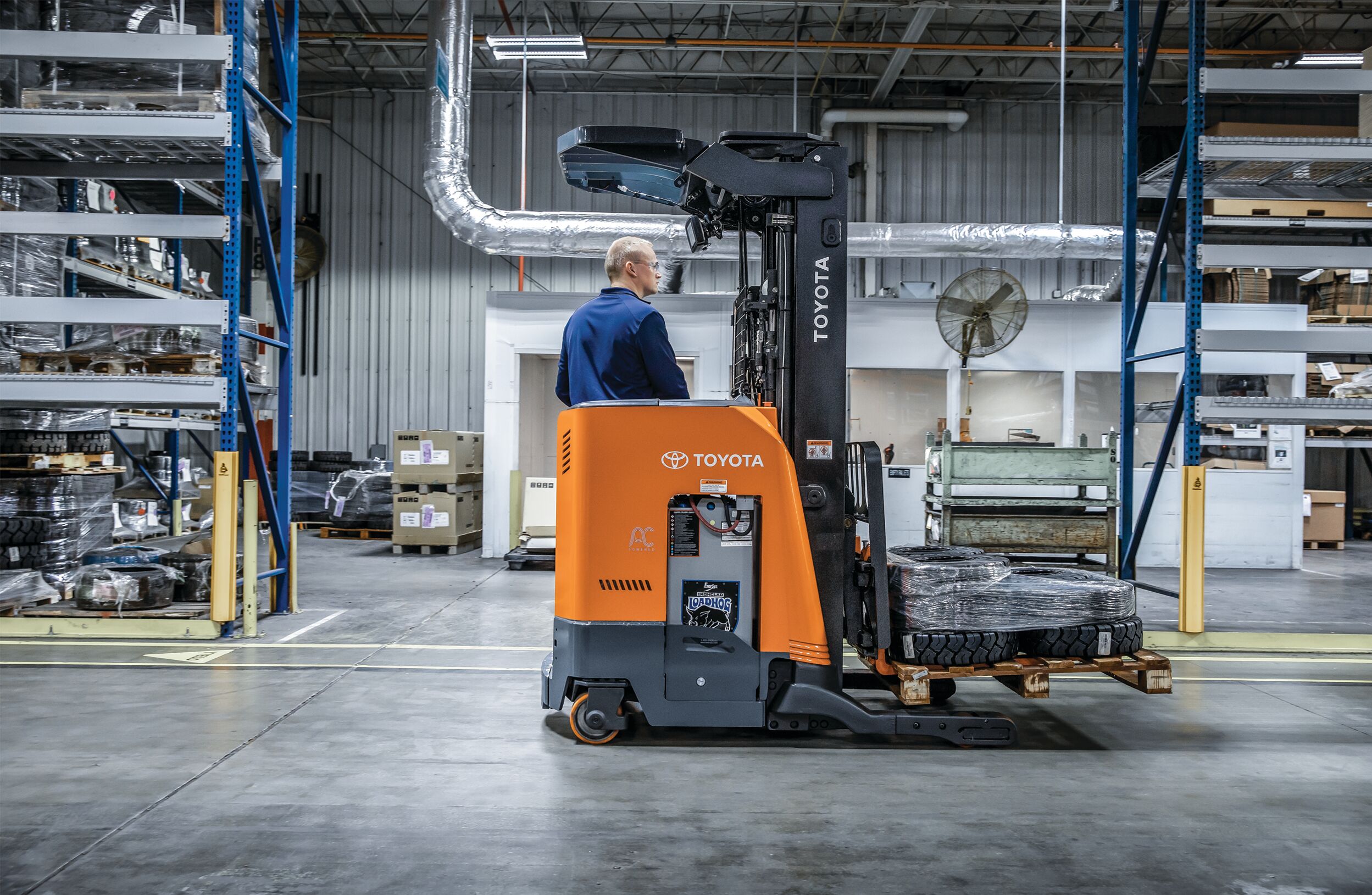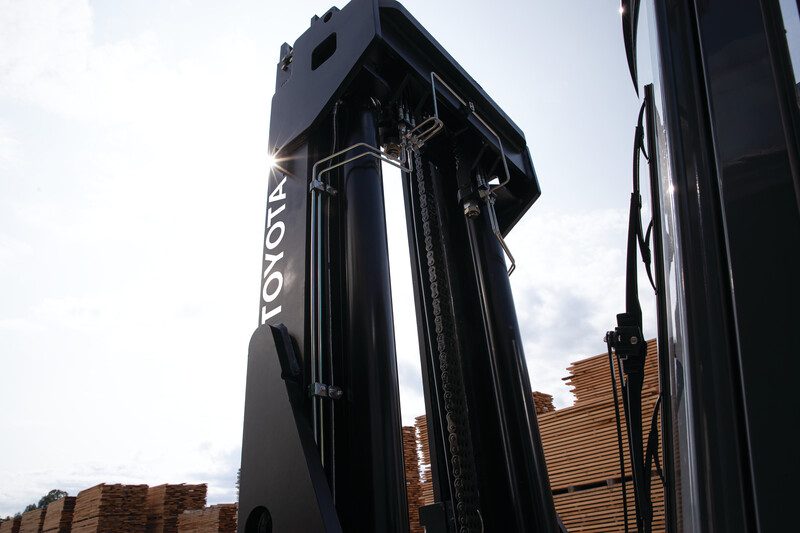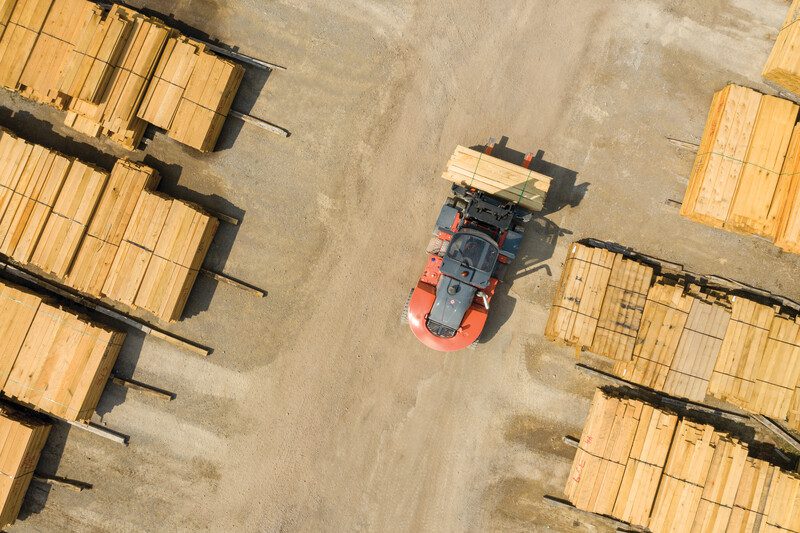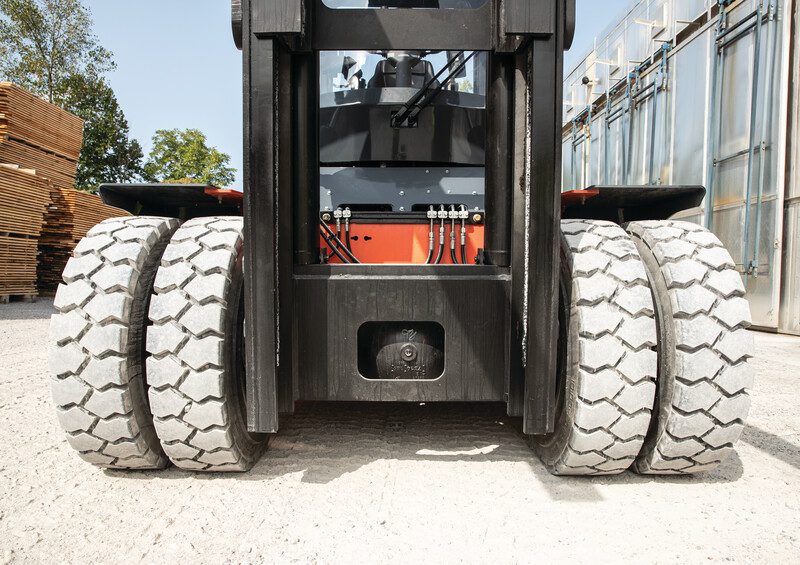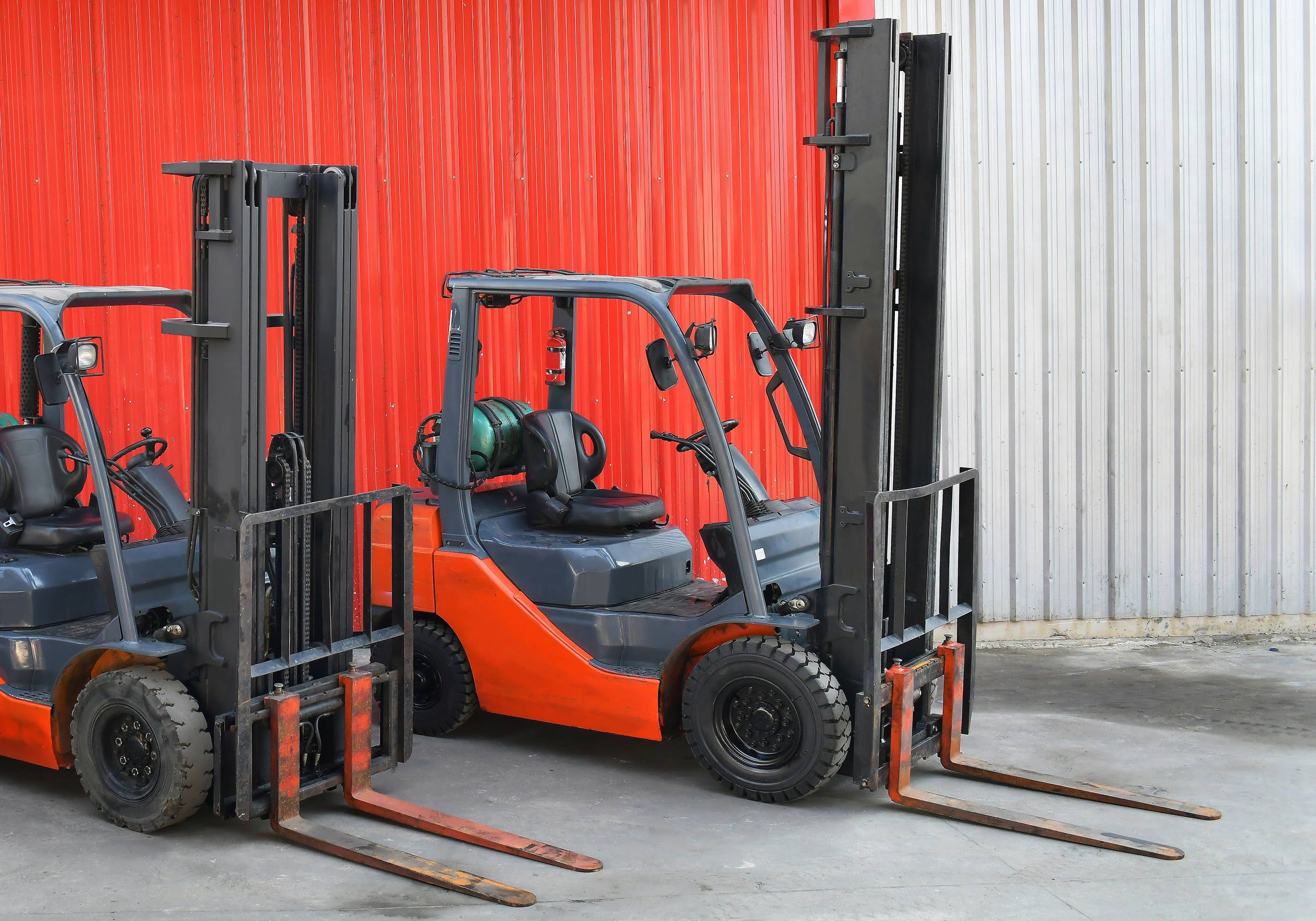 Guest post written by Alex Hilke of Conger Toyota-lift out of Green Bay Wisconsin.
Guest post written by Alex Hilke of Conger Toyota-lift out of Green Bay Wisconsin.
If you’re in charge of purchasing forklifts for your company, you might be overwhelmed. After all, there are hundreds of options to choose from. Your biggest question might not be what model to buy or what options you need, but rather: Should I buy new or used?
Fortunately, this guide will outline four key factors to consider, so you can make the right choice for your company, needs, and budget.
1. The Cost
If you’re like most companies, you’ve got a budget to stick to when making equipment purchases, so buying a used truck can be tempting, since it’s almost always the cheapest option.
Consider as an example these new and used forklift pricing scenarios:
First, a 5,000 lb. LPG-powered cushion:
- New: Approx. $24,000 to $30,000
- Used: Approx. $9,900 to $21,900
Second, a 5,000 lb. electric sit-down rider:
- New: Approx. $35,000 to $40,500
- Used: Approx. $8,550 to $25,000
But the purchase price alone doesn’t tell the whole story, because there’s another cost factor you may not be aware of that applies to both new and used trucks alike, and that’s the total cost of ownership.
If you’re unfamiliar with the concept, let’s break it down.
The total cost of ownership refers to all expenses related to the operation of the forklift. That includes the purchase price, fuel, operator training, and maintenance costs.
In deciding between new and used, maintenance costs are a critical factor to consider. That’s because used lifts have more wear and tear, and thus higher maintenance costs. Realistically, a used forklift can cost around $3.50 per hour or more in maintenance. A new forklift, on the other hand, will cost around $1.00 per hour.
So, when you consider the total cost of ownership instead of just the purchase price, you’ll get a more holistic look at the real costs of both new and used lifts. And that can help you decide which one is the right choice.
2. Your Work Needs
The standard advice from industry experts is that you should consider a new truck if you plan to use it for more than 4 hours per day, 5 days per week. That means if you’re running an around-the-clock warehousing or manufacturing operation, you’re probably better off going new.
But besides expected service hours, there are a couple other things you should consider. One is your facility’s layout and operational needs. For instance, if you’re operating a warehouse with 25-foot tall racking, you may have difficulty finding a truck with that tall of a mast on the used market.
Likewise, if you’re stacking pallets inside semi-trailers, you might have a tough time finding a lift with a shortened “trucker’s” mast.
If your facility has narrow aisle widths, you may require a short-frame 3-wheel electric forklift, a swing reach truck, or a side loader forklift. Each of these trucks may be in limited supply on the used market. A final factor to consider is the hydraulic setup of the truck.
If you’re using multi-function attachments like paper roll clamps and fork positioners, you’ll need at least four functions, but you may have trouble finding a used truck with that many functions that also meets your other operating requirements. Adding more hydraulic functions is an expensive modification to make. So, if you find yourself in that situation, you’re likely better off going new. That way, you can get the correct configuration from the start.
3. The Truck’s Service History
No matter what your business is, the name of the game is productivity. You’re not buying a forklift to just have it sit unused. You’re buying it to work, and if your operation requires equipment to operate at maximum uptime, you can’t afford to risk costly downtime events.
When it comes to greater reliability, less downtime, lower maintenance, and overall better productivity, new is the way to go. Obviously, new trucks won’t have any wear and tear from prior use. But in case something does go wrong, you’ll have the peace of mind of an extended warranty. Not all used forklifts come with that assurance.
Conversely, if you’re planning on having the lift serve as a spare or part-time truck, you may have a bit greater appetite for risk, and a used lift truck might be a good choice.
In that case, you’ll need to carefully consider the truck’s history before buying. For starters, make sure to get the service hours and maintenance log upfront.
Then, see if you can find out more about the truck’s previous operating environment.
After all, certain kinds of work environments and operating practices can take their toll on these machines, including:
- Extreme heat or cold
- Continuous operation across multiple shifts
- Poor maintenance practices
- Operator abuse
If you’re eyeing an electric lift, there’s another aspect of service history you’ll need to consider: The condition of the battery.
Unfortunately, this is something buyers often overlook. But since a new battery can cost anywhere from $3,000 to $12,000 or more new, you’ll want to make sure that you don’t. A good rule of thumb is to look for batteries with at least 80% capacity remaining. That equates to roughly four hours of usage before needing a charge.
Now, if you’re comfortable with the truck’s history and current condition, your next step is to have a qualified technician inspect it. They can alert you to anything that’s structurally deficient, mechanically defective, or that jeopardizes safety, like:
- Compromised overhead guard
- Binding or lopsided mast
- Leaks
- Loud noises
- Wiring issues
- Unevenly worn tires
One way to reduce your risk of buying a shoddy used truck is to purchase from a factory-authorized dealership. Because they must meet stringent manufacturer standards to carry their brands, you can trust the quality of the used lifts they sell.
4. Your Urgency
In a perfect world, you could predict exactly when you’d need a lift truck. You’d be able to plan ahead and make the arrangements to get it in time. But the reality is that your operational situation and needs can change at any moment.
Maybe you’re experiencing a sudden surge in business. Or perhaps one or more of your current lift trucks are out of commission. Either way, you may find yourself in urgent need of a forklift. If that’s the case, you might need to consider going with a used truck. In some cases, you can buy a used lift truck and put it to work in as little as a day or two. Especially if you’re buying from a local, certified dealership.
New trucks, on the other hand, can take as much as 18 weeks before they ship from the factory to the dealership and are ready for the customer, and that simply might not be an acceptable time frame for you and your company.
Conclusion
There you have it: Four key factors to help you decide between buying a new or used forklift.
We’ve given you a lot of useful information, but you may still have questions. If that’s the case, there’s no substitute for consulting with industry experts who know lift trucks. The experts at Southeast Industrial Equipment can help answer any questions particular to your situation so you can get the perfect lift for your needs and budget.
